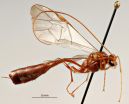Home umpires favor their own teams in test matches
2014-12-15
(Press-News.org) The introduction of neutral umpires in Test cricket led to a drop in the number of LBW decisions going in favour of home teams, a study has revealed.
The findings from research by economists, published by the Journal of the Royal Statistical Society, come amidst renewed debate on whether neutral umpiring is still required in Test matches following the introduction of the Decision Review System (DRS).
Economists Dr Abhinav Sacheti and Professor David Paton from Nottingham University Business School and Dr Ian Gregory-Smith from the University of Sheffield analysed Leg Before Wicket (LBW) decisions in exactly 1,000 Test matches that took place between 1986 and 2012 -- nearly half of Test matches ever played in the history of cricket.
Until 1994, both umpires in Test matches were from the same country as the home team. From 1994 to 2002, one of the two umpires was required to be from a neutral country and after 2002 both umpires were required to be neutral.
The economists found clear evidence of fewer decisions in favour of home teams with neutral umpires.
Dr Sacheti, lead author of the study, said: "Our results suggest that when two home umpires officiated in Test matches, away teams were likely to suffer on average 16 per cent more LBW decisions than home teams. When the ICC introduced the one neutral umpire policy, this advantage to home teams receded to 10 per cent.
"When two neutral umpires were required in every Test match, this advantage to home teams disappeared. This result holds even when we control for the quality of teams, the ground where the match was played and so on."
The economists found that the bias by home umpires in favour of home teams had been particularly strong in Test matches played in Australia, India, Pakistan and Sri Lanka.
A possible explanation for the finding is that home umpires were unduly influenced by pressure from local crowds and, indeed, a similar bias towards home teams has been noted amongst football referees. In fact, the home bias in Test matches was found to be strongest towards the end of the game, when crowds are often at their smallest. Many cricket fans have long claimed that home umpires are biased towards their own team and the findings of this latest research appear to provide support for such claims.
Professor Paton however offered a word of caution. "The results do not necessarily mean that umpires deliberately favoured their home teams -- the bias may have been unconscious. The fact remains though that introducing neutral umpires seemed to get rid of the problem."
Recently, some commentators have suggested that the introduction of the Decision Review System (DRS) eliminates the need for neutral umpires. Dr Gregory-Smith agreed that new technology can help to improve decision-making but warned: "Whatever the reasons behind the bias, our results suggest that cricketing authorities should be very cautious before returning to a system whereby umpires can officiate in Test matches involving their own country."
INFORMATION:
ELSE PRESS RELEASES FROM THIS DATE:
2014-12-15
This news release is available in Japanese. New research published in the journal genesis, by Kenneth Baughman, Dr. Eiichi Shoguchi, Professor Noriyuki Satoh of the Marine Genomics Unit at the Okinawa Institute of Science and Technology Graduate University, and collaborators from Australia, reports an intact Hox cluster in the Crown of Thorns starfish, Acanthaster planci. This surprising result contrasts with the relatively disorganized Hox cluster found in sea urchins, which are also echinoderms, classification of animals including starfish, sea lilies, and sea cucumbers. ...
2014-12-15
SALT LAKE CITY, Dec. 15, 2014 -- Because of undetected toxicity problems, about a third of prescription drugs approved in the U.S. are withdrawn from the market or require added warning labels limiting their use. An exceptionally sensitive toxicity test invented at the University of Utah could make it possible to uncover more of these dangerous side effects early in pharmaceutical development so that fewer patients are given unsafe drugs.
To prove the point, the U researchers ran their test on Paxil, an antidepressant that thousands of pregnant women used in the years ...
2014-12-15
The same species of monkeys located in separate geographic regions use their alarm calls differently to warn of approaching predators, a linguistic analysis by a team of scientists reveals. The study, which appears in the journal Linguistics and Philosophy, reveals that monkey calls have a more sophisticated structure than was commonly thought.
"Our findings show that Campbell's monkeys have a distinction between roots and suffixes, and that their combination allows the monkeys to describe both the nature of a threat and its degree of danger," explains the study's lead ...
2014-12-15
CAMBRIDGE, MA -- A new study from MIT implicates a family of RNA-binding proteins in the regulation of cancer, particularly in a subtype of breast cancer. These proteins, known as Musashi proteins, can force cells into a state associated with increased proliferation.
Biologists have previously found that this kind of transformation, which often occurs in cancer cells as well as during embryonic development, is controlled by transcription factors -- proteins that turn genes on and off. However, the new MIT research reveals that RNA-binding proteins also play an important ...
2014-12-15
In 1912, three species in the parasitic wasp genus Ophion were described by two different entomologists, increasing the number of known species in North America to eleven. It has long been known that the actual diversity is much higher; however, it took 102 years for any additional species to be described.
"The main reason for this is that everyone has assumed that Ophion are just too difficult to tell apart. Museum collections are full of unidentified Ophion, but nobody has wanted to face the challenge of sorting them out" said Marla Schwarzfeld, an entomologist who ...
2014-12-15
CAMBRIDGE, Mass., December 15 -- Scientists at The Forsyth Institute and Tufts University have succeeded in describing and validating a unique system of oral vaccine delivery using a common bacteria found in the mouth. Findings published today by Elsevier in Microbes and Infection identify Streptococcus mitis as a successful vector for oral mucosal immunization, and further research will determine its potential clinical use in tuberculosis vaccine development.
"Although injected vaccines are traditionally viewed as effective means of immunization to protect internal organs, ...
2014-12-15
The sudden appearance of a face within our visual field can affect the motor action accompanying a gesture even if the face is totally unrelated to what we are doing and even if we try to ignore it. At one condition, though: the face must display an emotionally significant expression. A study conducted by scientists of the International School for Advanced Studies in Trieste, and just published in Psychonomic Bullettin & Review, describes the phenomenon in detail.
Many are the things that can influence our actions at the motor level. Among them, a particularly effective ...
2014-12-15
New Rochelle, NY, December 15, 2014-Adiponectin, a collagen-like protein secreted by fat cells, derives from the ADIPOQ gene. Variations in this gene may increase risk for type 2 diabetes, cardiovascular disease, and various cancers. A new study that links specific variations in the ADIPOQ gene to either higher or lower colorectal cancer risk is published in Genetic Testing and Molecular Biomarkers, a peer-reviewed journal from Mary Ann Liebert, Inc., publishers. The article is available on the Genetic Testing and Molecular Biomarkers website until January 11, 2014.
Xin ...
2014-12-15
Since August 2014, aflibercept (trade name Eylea) has been available also for patients with visual impairment due to diabetic macular oedema (DMO). The German Institute for Quality and Efficiency in Health Care (IQWiG) examined in a dossier assessment whether this drug offers an added benefit over the appropriate comparator therapy.
According to the findings, an added benefit in this therapeutic indication is not proven: The data showed no relevant differences between the treatment groups for patients in whom the fovea centralis is also affected. The drug manufacturer ...
2014-12-15
Squid, what is it good for? You can eat it and you can make ink or dye from it, and now a Penn State team of researchers is using it to make a thermoplastic that can be used in 3-D printing.
"Most of the companies looking into this type of material have focused on synthetic plastics," said Melik C. Demirel, professor of engineering science and mechanics. "Synthetic plastics are not rapidly deployable for field applications, and more importantly, they are not eco-friendly."
Demirel and his team looked at the protein complex that exists in the squid ring teeth (SRT). ...
LAST 30 PRESS RELEASES:
[Press-News.org] Home umpires favor their own teams in test matches




